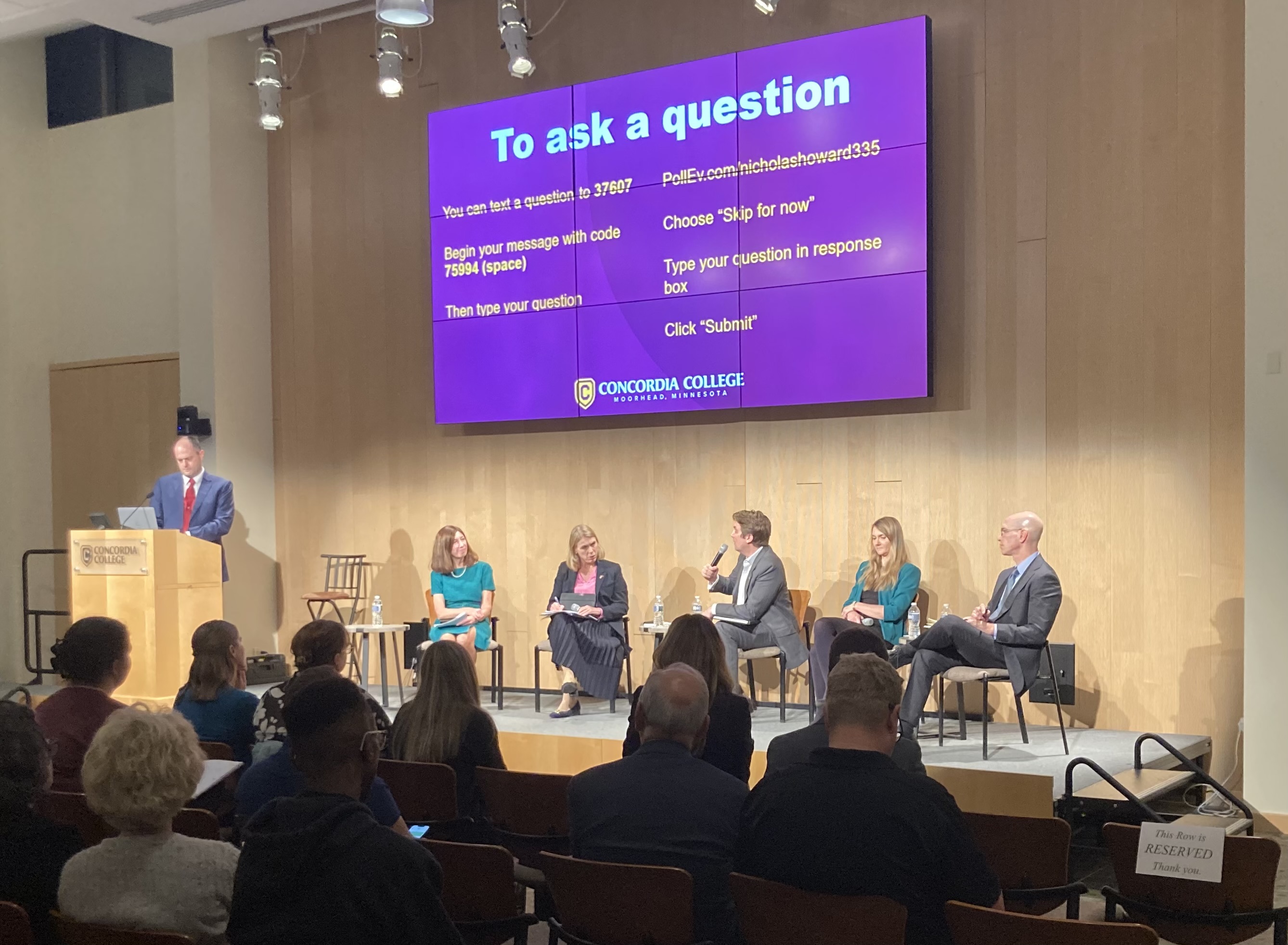MOORHEAD— On Oct. 14 at 4 p.m., the Faculty Senate convened to discuss the current motion on the table: “to adopt a critical issues course as part of the core curriculum.”
The Faculty Senate delayed the motion but voted 27-10 in favor of an amendment to the requirements.
The main requirement of the motion’s adoption is that students would be required to take either a designated social justice course or a environmental sustainability course, beginning Fall 2025. Without the motion, both will be required.
Nathan Axvig, associate professor of mathematics and computer science and member of the Faculty Senate, stated that requiring of one courses rather than both would “boost enrollment and stabilize college finances.”
Provost and dean, Susan Larson, clarified budgetary matters: finite professors, time and money would make the offering of additional courses difficult. She argued that providing all students with the opportunity to take the class and mandating it for all students would be a challenging spread of resources.
The current new course budget is worth $4.1 million dollars. This has allowed Concordia to balance the budget for the current year but will result in a gap next year. Concerns over this gap created a hesitation to implement a change that would create a larger monetary need.
Since the COVID-19 pandemic, enrollment has been declining. Despite being up this school year, it still remains as a high concern to many.
“Putting our energy and time into new program development we believe will be a good bet,” Larson said.
Many faculty voiced concerns that if this motion were to pass, Concordia would be unable to implement any change and work toward the new program.
A frequent concern was also for the image of Concordia. This stems from parents who “are worried their students are going to be indoctrinated,” Provost Larson stated.
Forcing more civic awareness courses would risk enhancing this fear- while enforcing Concordia’s mission statement.
As conversation turned back to the need to reduce the required courses in the Core Curriculum, Dr. Jeff Meyer voiced his concern fulfilling student’s schedule and asked if a particular core requirement had been considered for removal.
“If a reduction were to be made, what other options were considered?” Meyer said.
There was no discussion on eliminating other courses from the core requirements other than moving to one civic engagement course; the focus had been entirely on replacing the US and Global Perspectives courses.
Student Government President, Grace Halvorson, voiced SGA’s unanimous decision: a rejection of the motion to reduce requirements to an either/or choice between justice and sustainability.
The goal to “advance understanding, empathy, and justice” should be made clear through Concordia’s culture and courses, said Halvorson, which this resolution would limit.
Halvorson added in the compromise in the form of an amendment: Beginning Fall 2025, the course plan would be implemented as previously planned, but the state of the core would be re-evaluated annually. In five years or less, Concordia would change the requirement to include both courses.
Faculty seemed largely in favor of the amendment.
“I never saw this as a one and done situation where we would only ask for one critical inquiry course and that’s it,” Mark Jensen said.
Halvorson’s amendment would allow for action now without sacrificing the larger goal to a ‘one and done situation.’
SGA Vice President Daniel Davies then stood in favor of the amendment on behalf of former students of Concordia College.
“It’s important to remember that this all started with students,” Davies said, “back in 2017 I believe, and to walk back on it now without a clear plan forward seems to be a disservice to that effort that they put in.”
Seven years later, the same fight is still ongoing.
Halvorson clarified the amendment she had proposed was not entirely in line with what SGA had hoped for. Rather it was a compromise which would eventually reach the point they strove for.
Ultimately Axvig called to question and a paper ballot was completed. The amendment passed with 27 yes, ten no, and two abstentions.
“It is long past time for action to be taken, and a step forward is better than no step at all,” Halverson said.



Be First to Comment